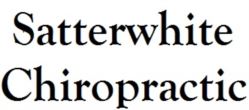Diagnosis is key to Relief of Oxford Spinal Gout
Gout. If you’ve experienced gout, you know how uncomfortable it is. You may also know how difficult it was to diagnose, especially if it was in the spine. Back pain or leg pain may have been your first symptom. Your Oxford chiropractor at Satterwhite Chiropractic understands spinal gout, its resemblance to other conditions’ symptoms, and the latest advised assessments to diagnose it sooner than later to help you get the (proper!) care you need.
PREVALENCE OF SPINAL GOUT
Arthritis is an inflammatory condition affecting people around the world - 47.8 million US sufferers, 8 million UK sufferers, 108 million European sufferers - with osteoarthritis being the most common affecting joints in the knee, hands, etc. Gout is just such an inflammatory cause of pain in similar areas, making it challenging to diagnose and discrimainate from other inflammatory issues. (1) A recent narrative review reported that 94% of spinal gout patients described back or neck pain, 86% showed neurological symptoms, 72% had a history of gout, 80% tested for high levels of serum uric acid, and 76% went through a surgery. Though an uncommon cause of spine pain, gout’s inflammatory arthritis results from monosodium urate crystals in synovial fluid and other joint tissues (ankle, foot, hands, wrists, elbows, knees, hips, and spine). (2) An early, suitable diagnosis of spinal gout can better direct treatment and improve clinical outcomes.
DIAGNOSIS OF SPINAL GOUT
Researchers have explored a variety of ways to safely and accurately identify gout in people who have never had gout. They have analyzed studies going back as far as 1945! They found that synovial fluid monosodium urate crystal analysis and imaging were better than a clinical algorithm of signs and symptoms only for diagnosis and treatment planning. (3) Facet joint disorders, osteoarthritis, synovial cysts, etc., can muddle the diagnostic process for spinal gout. Fortunately, dual energy computed tomography (DECT) illustrates the crystals. However, healthcare providers must be aware of the possibility of gout to request the proper test. (4) A narrative review of published studies on spinal gout that was undertaken by two chiropractors concurred. To make better the quality of life of spinal gout sufferers as well as the diagnosis, treatment planning and prevention of surgery, a mix of clinical symptoms, lab tests, and DECT may hold the answer. (2) Satterwhite Chiropractic notes that cases of spinal gout are appearing in the medical literature.
CASES OF SPINAL GOUT and TREATMENT
One case of a 48-year-old man with sudden, severe, sharp low back pain that limited his mobility and with no history of gout ended up with a diagnosis of spinal gout after an MRI revealed a mass in his right erector spinae muscles which lead to a pathological exam revealed spinal gout. 29% of patients with gout are affected by spinal gout, too, which did not help in this case of a patient without gout but is a noteworthy stat to consider in the next case. (5) A 41-year-old male who did have a 7-year history of gout came for help with severe back pain, fevers, and radiculopathy. After a biopsy, spinal gout was diagnosed negating an initial diagnosis of vertebral osteomyelitis. Primary treatment often includes symptom management with colchicine, steroids, urate reducing therapy, and NSAIDS. (6) If spinal gout is speculated, Satterwhite Chiropractic will get the right tests ordered.
CONTACT Satterwhite Chiropractic
Listen to this PODCAST with Dr. Joseph Beissel on The Back Doctors Podcast with Dr. Michael Johnson as he illustrates the relief with The Cox® Technic System of Spinal Pain Management for chronic back pain.
Schedule your Oxford chiropractic appointment soon. Your Oxford chiropractor will do a thorough examination to determine the best course to appropriately diagnose, treat, and attain the best relief of spinal gout.

